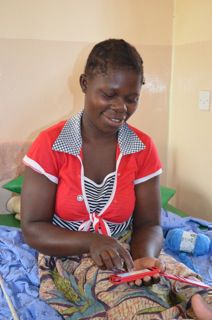Don’t be shy, get talking!
A recent poll has found that only one in ten British travellers learn any of the language before they visit another country. Some claimed this was because English is now so widely spoken, while others blamed shyness and a fear of saying the wrong thing.
I understand the second excuse much more than the first. Just because we can get away with speaking English doesn’t mean we should. Learning just a few words can make a huge difference, not only to those you’re speaking to but to your own holiday experience. And you don’t have to learn anything complicated. Five per cent of people surveyed said they just learnt the absolute basics, like hello, please, thank you, water and beer. Sometimes all it takes is a friendly greeting in someone’s native language, and they see you in a whole new way – as someone who respects their culture and has made an effort, however small. And that will come across in the way they treat you, making your time in the country a lot more fun. Not only that but you’ll feel pretty good about yourself – I remember several years ago on a school trip to Spain, a friend of mine ordered an ice cream in Spanish. An ice cream – it was as simple as that. But she was so proud of herself when the vendor understood her and she completed the purchase in a language not her own.

Benny Lewis, who’s known as the Irish polyglot, has spent nine years travelling in different countries, learning languages as he goes. Every few months he announces a new challenge, learns some vocabulary and then – he just goes to the country and starts talking. He doesn’t worry about making mistakes or getting his grammar slightly wrong.
Obviously we’re not all as brave as Benny. I’m certainly not. But there does come a point when you have to stop being scared and just take a risk. People are not going to point and laugh if you don’t pronounce something quite right. As a general rule they’ll be so pleased to hear you trying to speak their language that they won’t mind at all, and will probably go out of their way to help you get it right next time.
So let’s be brave! Next time you go on holiday try learning a few basics before you go, and see what a difference it makes…
Liz
The beginner’s guide to London
As London welcomes visitors from all over the world this week, we’ve put together our own guide to the city, with a selection of hints and tips to help you feel like a local…
While you’re here
– Why not take the River Bus from Putney to Blackfriars, then on to Greenwich? It’s a fast and comfortable way to cross the city, with amazing views – and no traffic jams!
– A visit to Shakespeare’s Globe will set you back just £5 for a standing ticket and is well worth it, as long as the sun’s shining… Or you could see a show in the West End – there are discount ticket booths in Leicester Square and Covent Garden where you can buy tickets for the same day.
– Go and take a look at The Shard – the tallest building in Western Europe, which has just opened near London Bridge (be prepared for a sore neck). From next year visitors will be able to travel to the top and take in the amazing views – but in the meantime, here’s a website that lets you see what you’re missing. It really is pretty special.
– If you fancy getting out of the city centre, Richmond Park and Kew Gardens are lovely – although not far from town, you’ll feel like you’re in the countryside. At Richmond, you can even see their famous deer herd.
– London boasts some fantastic free museums; we recommend the Science Museum, Natural History Museum, British Museum and the Tate Galleries, but there are plenty of others to choose from.
Useful tips
– If you’re not going far, don’t take the London Underground (also known as the Tube) – you’ll find it’s much quicker, cheaper and cooler to stay at street level and walk. This is particularly true of stations on or near the Circle Line so don’t get caught out! You can’t go too far without stumbling across a station, and there are maps pretty much everywhere, so it’s quite hard to get lost. But if you are travelling on the Tube, get yourself an Oyster Card, it’s by far the easiest way to pay for your tickets.
– Alternatively, if you want to be able to see where you’re going, but don’t fancy the bus, try hiring a ‘Boris Bike’ (named after Mayor of London, Boris Johnson, in case you were wondering). You can just pay and go, then when you’re finished, return the bike to any of the docking stations located around London – no need to bring it back to where you started.
– Most people don’t really talk in Cockney Rhyming Slang, so if you try addressing someone as your ‘china plate’ you may get some funny looks. But then again, we don’t all talk like The Queen, either. Terribly sorry, old bean.
– To feel like a real Londoner, just roll your eyes and say to random strangers, ‘Well at least the sun’s come out at last.’ You’ll fit right in.
– On a similar note, do remember to come prepared for all weathers – a typical bag should contain sun cream and sunglasses as well as an umbrella and some warm layers of clothing.
– And finally, food – we have some strange names for our dishes, so be prepared. For instance, black pudding is not, in fact, a pudding but a type of sausage (and something of an acquired taste). Eton mess sounds horrible but is actually a very tasty dessert featuring strawberries, meringue and cream. And toad in the hole does not contain any toads. Honest.
Most importantly, we hope you enjoy your visit! And don’t be afraid to ask the locals for help – we Brits may seem a bit grumpy (especially during rush hour) but underneath we’re really very nice people…
Are you a Londoner with some useful advice? Or maybe you’re visiting and have already discovered a hidden gem? Please share them in the comments!
Liz and the EuroTalk team
An Olympic Challenge
The Olympics are only a couple of weeks away and with estimated viewing figures of over four billion, and visitor numbers expected to boom, it seems the eyes of the world will shortly be focused on London.
 The stadium is ready, transport tests are being carried out and athletes are getting in their final hours of training. With 205 countries taking part, and hundreds of different first languages, how do you ensure that Rafa Nadal doesn’t end up walking bemused around the Olympic stadium rather than Wimbledon, and that Usain Bolt knows where to buy chicken nuggets before the 100m final?
The stadium is ready, transport tests are being carried out and athletes are getting in their final hours of training. With 205 countries taking part, and hundreds of different first languages, how do you ensure that Rafa Nadal doesn’t end up walking bemused around the Olympic stadium rather than Wimbledon, and that Usain Bolt knows where to buy chicken nuggets before the 100m final?
Being the largest and one of the most multicultural capitals in Western Europe does have its advantages; with 200 ethnic communities, and more than a third of its population speaking at least two of over 300 languages present within London, the Olympic organizers have spent the last two years recruiting volunteers for a vast array of opportunities to ensure the games are a success.
Adverts were posted stating the huge advantages of having a second language and this has resulted in over 1,000 volunteers being selected to man vital information points in the stadium and at major transport links. With Royalty, Presidents and VIPs arriving from all over the world, and with athletes having to be briefed, debriefed, transported and organised, the games have given language learners a great opportunity to become an integral part of the games itself.
It is no wonder then that when Nelson Mandela was asked his opinion on the games he replied, “I can’t think of a better place than London to hold an event that unites the world.”
Will you be watching the Olympics? Or are you coming to London? Maybe you’re even one of the 1,000 volunteers? We’d love to hear what you think about the games and the city.
Glyn
Valentine’s – it’s not all flowers and chocolates…
Valentine’s Day is here again, and like a lot of people, I’m a bit fed up with it. I’ve lost count of the number of emails I’ve received over the last few weeks, inviting me to use Valentine’s as an excuse to buy everything from chocolates to an iPad – I even got one suggesting I should hire a private jet (yes, really) to surprise my loved one.
 Here in the UK, Valentine’s Day is very much a day for couples, and has become known as a very commercial holiday. The usual traditions are cards (sometimes anonymous), flowers, chocolates and candle-lit dinners. But not all countries celebrate in the same way (or even on the same day). Here are a few alternatives:
Here in the UK, Valentine’s Day is very much a day for couples, and has become known as a very commercial holiday. The usual traditions are cards (sometimes anonymous), flowers, chocolates and candle-lit dinners. But not all countries celebrate in the same way (or even on the same day). Here are a few alternatives:
If you thought celebrating Valentine’s once a year was enough, think again. In Japan February 14th is just the start, when women give chocolate to the men in their life. This doesn’t have to be just boyfriends and husbands but can also include co-workers and friends. Then on March 14th, which is known as ‘White Day’, the men give the ladies a gift of greater value (sounds good to me!). Going one step further, in South Korea, the 14th of every month is a love-related day of some kind. On April 14th, anyone who didn’t get a gift in February or March is expected to go out and eat black noodles in recognition of their single status.
In some areas of Latin America, Valentine’s is known as ‘Dia del Amor y la Amistad’ (Day of Love and Friendship). It’s celebrated with ‘Amigo secreto’ (Secret friend), which is similar to the Secret Santa tradition at Christmas and involves buying a gift for a friend selected at random.
In Catalonia, Spain, loved ones exchange gifts on Valentine’s Day and also on 23rd April, which has become known as ‘El Dia del Llibre’ (Day of the Book) because it’s the day that both Miguel Cervantes and William Shakespeare died (in 1616). Women traditionally give men books as gifts, while the men reciprocate with either a book or a rose. Bookshops and cafes hold book-signings and public readings to celebrate the day.
Finland celebrates ‘Ystävänpäivä’, which means ‘Friend’s Day’. Although it is becoming an increasingly popular day on which to get engaged, the main focus of the day in Finland is to celebrate friendship of all kinds, and presents are exchanged between friends as well as lovers.
And finally, France. A (now banned) custom used to be held, known as the ‘loterie d’amour’. Single men and women would enter houses facing each other and call to one another until they were all paired off. Afterwards, any women who were left single would build a huge bonfire and burn images of men who had hurt them, whilst screaming abuse at them. Eventually the ‘loterie’ was banned by the French government. I wonder why.
So, Happy Valentine’s Day everyone, wherever you are and whether or not you’re part of a couple – we all have special people in our lives, so let’s celebrate them 🙂 Will you be doing anything special or unusual to celebrate? Let us know!
Liz
A visit to Malawi
I visited Malawi for a week last month. My first impressions were the enthusiasm and happiness shown by so many Malawians. But real problems are just under the surface. For example, a serious petrol shortage means at least eight-hour waits at petrol stations.
During my visit, we installed gadgets (iPod touches) in two locations:
Primary school
Here we supplied the iPods to ten Standard 1 and 2 teachers (the first two years of Primary education) in a primary school with 5,000 children. Each teacher has a class of more than 250 children. The whole school has 24 teachers – including the head and deputy. The deputy head is paid £80 a month – and needs to spend £40 a month on rent. He has to buy everything for his children and extended family on £40 a month.
Since I got back, the headteacher has written to me:
“How is London these days? Malawi is good and we are waiting for the first rains ready to plant crops since Malawi depends on farming. Andrew I’m pleased to tell you that our pupils have started scoring the stars on the charts using the devices. We are now giving the stars, which is encouraging and interesting.”
Hospital
Here I met with some women who had had a fistula operation. These are women who have had problems giving birth. They not only lose their baby but are damaged – and become incontinent. As a result they are often rejected by the village society and treated like “modern day lepers”. I met one woman who got a fistula as she gave birth 45 years ago. Her whole life changed, as she suffered first the trauma of losing a baby and then being rejected by all around her. The operation takes about three hours, but all the ladies need to be in hospital for a month. Their lives are transformed in the most profound way. EuroTalk have donated software and gadgets for these ladies to use while in hospital. These gadgets had preinstalled language learning and maths apps in English and Chichewa, as well as Malawian music, photos, video clips, lesson plans etc.
These are women who have had problems giving birth. They not only lose their baby but are damaged – and become incontinent. As a result they are often rejected by the village society and treated like “modern day lepers”. I met one woman who got a fistula as she gave birth 45 years ago. Her whole life changed, as she suffered first the trauma of losing a baby and then being rejected by all around her. The operation takes about three hours, but all the ladies need to be in hospital for a month. Their lives are transformed in the most profound way. EuroTalk have donated software and gadgets for these ladies to use while in hospital. These gadgets had preinstalled language learning and maths apps in English and Chichewa, as well as Malawian music, photos, video clips, lesson plans etc.
The hospital anaesthetist has written:
“… the mothers really like the iPods to the extent that when I am busy they even call for them. Some of our young patients are turning into teachers of elderly patients.”
We are planning an update to the digital resources for the school and the hospital early next year.
I also met with members of the Scottish Government, who were visiting Malawi. The SG and EuroTalk are jointly funding the devices and software for these gadgets to go into 30 schools. It’s a really exciting project!
On a personal note, I was really encouraged by this visit. It follows so much work done by so many people. The potential for low cost digital devices and software in local languages to deliver education is enormous. Thank you to so many at EuroTalk, past and present, who have turned ideas into a reality.
Andrew (EuroTalk Managing Director)





